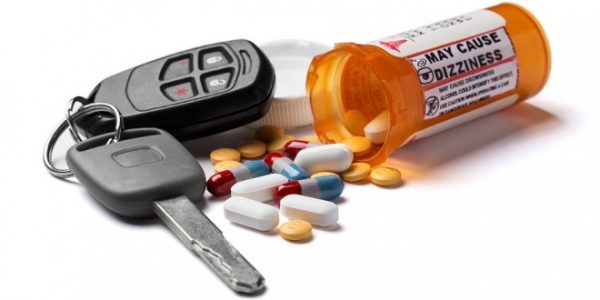
Traffic accidents pose a major threat in the world, as they claim thousands of lives every year around the world.
It is no secret that many factors lie as reasons behind these accidents, such as the quality of the vehicle structure and vehicle equipment.
But the human factor remains the most involved, especially with regard to behaviors:
Excessive speed, drinking alcohol, driving a vehicle while tired and exhausted, taking hallucinogenic substances and medications.
Yes, even medications are involved in many accidents
Many of them can pose a danger to driving a vehicle or operating a dangerous machine.
How can medications affect the ability to drive?
The effect of medications on the ability to drive is often due to their effect on the nervous center.
This effect could be a major one in the medication, meaning that it is prescribed for this effect (a sleeping medication, for example).
It could also be related to a side effect of the medication; For example: medicine for a cold can cause a decrease in concentration.
In addition, medications can affect the ability to drive in several other ways:
Disorders of consciousness and concentration, vision disorders, behavioral and movement disorders, balance disorders…
These effects can be exacerbated by certain conditions:
Alcohol consumption, taking several medications, dosage error, fatigue, stress, liver or kidney disease, advanced age… In addition, it varies from one person to another.
How can I avoid the effect of medications on driving?
Every time you take a medication that affects your ability to drive
(This is indicated in the recipe) It is advisable to respect some simple tips:
- It is recommended to take this type of medication at night when going to sleep.
- Stop driving when you feel any warning sign: drowsiness, difficulty concentrating, difficulty maintaining the vehicle’s lane, vision disturbances.
- Do not drink alcohol in general, as its effect can exacerbate the effect of these medications.
- It is recommended not to take other medications in addition to those that may affect the ability to drive.
- In the case of long-term treatment, it is better not to change the dose or take another medication without consulting your doctor.
- When taking medications intended to treat a disease that affects the ability to drive, such as epilepsy, depression, heart disorders.
- It is important not to stop treatment without consulting your doctor.
How do you know that the medication is appropriate and does not affect your driving?
Read the leaflet/prescription that comes with the medicine
Who ultimately decides whether you should take your medication?
You decide that
Who decides that you can drive a car even though you are taking medication?
You decide that
I advise you not to drive a vehicle when taking strong or inappropriate medications that negatively affect your ability to drive a vehicle
- Access to all lessons
- Accessing 1400 questions
- Accessing traffic signs
- Computer or Mobile Login
- Study without ads
- View test results
- Instant activation
- Access to all lessons
- Accessing 1400 questions
- Accessing traffic signs
- Computer or Mobile Login
- Study without ads
- View test results
- Instant activation
- Access to all lessons
- Accessing 1400 questions
- Accessing traffic signs
- Computer or Mobile Login
- Study without ads
- View test results
- Instant activation
- Access to all lessons
- Accessing 1400 questions
- Accessing traffic signs
- Computer or Mobile Login
- Study without ads
- View test results
- Instant activation
- Access to all lessons
- Accessing 1400 questions
- Accessing traffic signs
- Computer or Mobile Login
- Study without ads
- View test results
- Instant activation
- Access to all lessons
- Accessing 1400 questions
- Accessing traffic signs
- Computer or Mobile Login
- Study without ads
- View test results
- Instant activation
- Access to all lessons
- Accessing 1400 questions
- Accessing traffic signs
- Computer or Mobile Login
- Study without ads
- View test results
- Instant activation
- Access to all lessons
- Accessing 1400 questions
- Accessing traffic signs
- Computer or Mobile Login
- Study without ads
- View test results
- Instant activation
